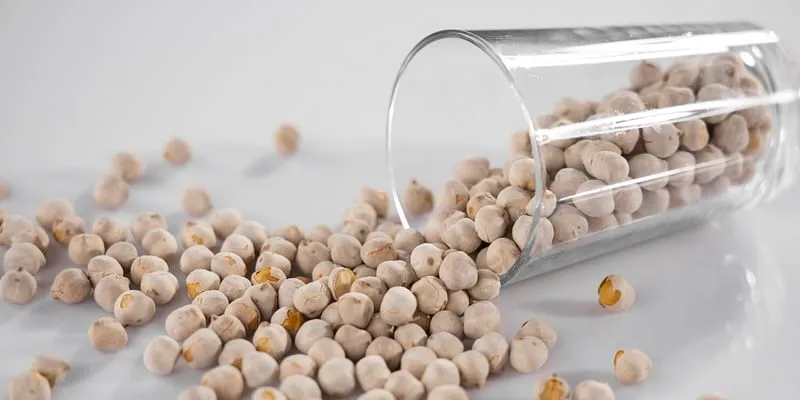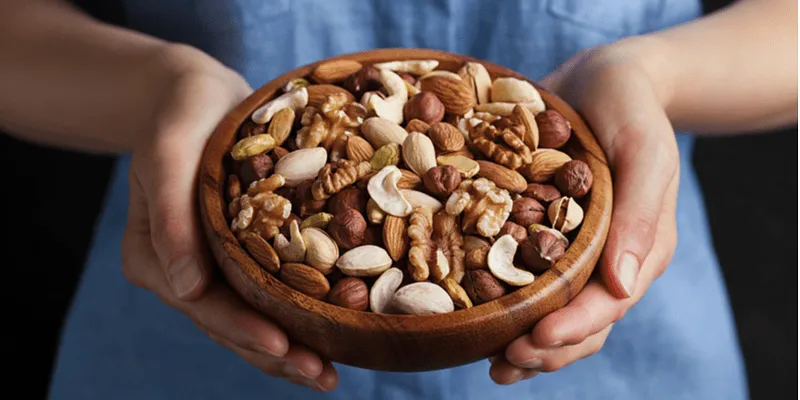High-protein diet a must for COVID-19 recovery
Protein helps to stabilise blood sugar, maintain adrenal function correctly, balance hormones, repair skin, hair, and nails, boost brain function, improve sleep quality, improve stress resilience and aid recovery after COVID-19.
There is so much effort on trying to understand various connections amidst the pandemic. There are several articles mentioning severe hair loss, fatigue, poor sleep, and hormone disruption post vaccination and post COVID-19.
You might be wondering why some people get better quickly and some just struggle. This might go back to the state of their overall health. Everyone does react differently to vaccination and to recovery post COVID. Protein, however, plays a key role! Protein can very well be a strong differentiator in reactions.
Why does protein matter post COVID-19?
Rebuilding the immune system is very important. COVID-19 is a form of high stress on the body. In any situation of such immense stress, your body down regulates digestive, immune, and reproductive function. The impact of high steroids through the condition is also very impactful on the body.
Being deficient in protein can also be a reason for poor immune function, which can predispose you towards succumbing to COVID-19. Also, remember that someone who has gone through COVID-19 would have had a phase where their diet was suboptimal, perhaps even on IV. All of that can have substantial impact on the immune function, which you can only focus on post recovery as a form of rebuilding immunity and overall health.
Does protein play a role post vaccination?
Vaccination can impact liver function and shift the immune system. This can lead to side effects such as fatigue, fever, hormone changes, change in mood, and impact sleep.
Supporting liver health with the right nutrients, one of which is a protein-rich diet with several amino acids, is very important. It can also be the approach to prevent post vaccine side effects.
Top 6 protein rich foods
You might think this is nothing new, but it is interesting to note that most people who think they are eating protein are not getting adequate protein. There is a world of difference between getting adequate protein and optimal protein. You can scrape by with adequate, but to truly support your body through the pandemic, vaccination, or recovery, optimal is key. Think of getting 1.5 grams of protein per kg of body weight during these times.

Image source: Shutterstock
1) Free range eggs are a complete amino acid profile. They are rich in antioxidants, which can be game changing post the oxidative stress of COVID-19. Eggs are also rich in vitamin D, which is the immune system’s star! They help balance blood sugar, which is also important to restore adrenal function and hormone equilibrium.
2) The microbiome plays a key role in gut healing. L-glutamine is an amino acid. It helps mucosal healing and blood sugar regulation. It helps with rebuilding the gut lining post high steroids or vaccinations. Speak to your nutritionist about adding this as a nutrient. You can also get this nutrient from some foods like cabbage, leafy greens, fish, chicken, and lentils.
3) Pulses and legumes can be a great vegetarian source of protein. However, there is a difference between including a little dal with your sambar and having a bowl full of dal by itself. Make sure that you include a bowl of lentils, beans, or chickpeas at every single meal. Vary them as much as possible to get yourself a wide range of amino acids.
4) Fish is a great source of protein, which is easy on digestion and highly anti-inflammatory. Many people do struggle to digest complex beans and lentils, especially when the gut and immune function is compromised. If you struggle to breakdown dals and find yourself very gassy and uncomfortable, fish may be the answer to rebuilding. If you are omnivore, fish is your answer to include optimal protein.
5) Grass-fed and free-range red meat like lamb are rich in amino acids and several gut healing nutrients, all of which can be very important post COVID-19. You just need condiment sized portions of them to provide your body with a wide range of nutrients so don’t be afraid of the red meat. It is only a problem if you have huge quantities of it without any vegetables.

Image source: unsplash
6) Sprouts are a much-needed source of protein for vegans. Including mung, alfalfa, chickpea, and even flax or chia makes them easier to digest and boosts your protein requirements instantly. Add a cup of mung sprouts to every meal to raise protein, and you can also add more with a high-quality plant protein powder for some time to recover better.
Protein helps to stabilise blood sugar, maintain adrenal function correctly, balance hormones, repair skin, hair, and nails, boost brain function, improve sleep quality, improve stress resilience and aid recovery after COVID-19.
High quality proteins include grass-fed meat, beef, free range chicken, wild caught fish, scallops, oysters, liver, clams, shrimp, sardines, collagen, free range eggs, legumes, chickpeas, beans, nuts, seeds, tofu, peas and dairy, if you have a good source that is free of antibiotics and hormones. Lack of stamina, mental depression, general weakness, poor resistance to infection, high triglycerides, poor iron absorption, hair fall and bad skin can also be signs of less than optimal protein.

Image source: Shutterstock
Leucine helps your skin, bones, tissues, and in healing wounds, and promotes growth hormones. Isoleucine is required for haemoglobin synthesis. Lysine is required for muscle protein, enzyme production, hormones and healthy nervous system. Methionine is needed as an antioxidant, for breakdown of fat, for your skin and your nails. Phenylalanine is required for learning, for the nervous system and to prevent depression. Tryptophan is needed for the synthesis of serotonin. Valine is needed for muscle development.
It is not important that you break these down and try to get foods of each, but what matters is that you understand the importance of the sheer number of functions that require protein. Protein is an integral part to all healing.
Edited by Megha Reddy
(Disclaimer: The views and opinions expressed in this article are those of the author and do not necessarily reflect the views of YourStory.)







